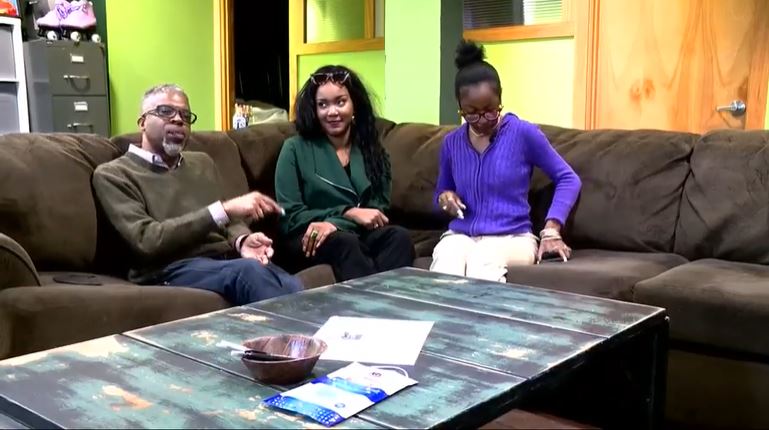Young storytellers to document Community Reparations Commission’s progress

Asheville and Buncombe County are partnering with a local nonprofit to tell the story of the Community Reparations Commission. A group of young storytellers with Arteria Collective will document the commission’s work over the next two years.
By Taylor Thompson
Click here for updates on this story
ASHEVILLE, North Carolina (WLOS) — Asheville and Buncombe County are partnering with a local nonprofit to tell the story of the Community Reparations Commission.
A group of young storytellers with Arteria Collective will document the commission’s work over the next two years.
In 2020, Asheville City Council passed a resolution supporting community reparations for Black Asheville.
Fast forward to March 2022, the city council and Buncombe County Board of Commissioners appointed members to the Community Reparations Commission with the purpose to create recommendations that will help repair damages caused by systemic racism in the community.
Arteria Collective executive director Sekou Coleman said the organization’s mission is to ignite social change through the power of arts, culture and restorative self-expression. The work the group has done around the community through the years was enough for city and county leaders to build a partnership.
“They reached out to us to see if we could work with them in engaging young people in telling the story of the reparations process,” Coleman said.
Conversations about creating a team began in August but just became official last week. Coleman said it took time to get the team started in the right way because this will be a long-term project.
Project manager Elizabeth Lashay Garland said the way to bring life to what the commission is doing is by storytelling, but not just by storytelling. Garland said having young people be the storytellers is vital to the message.
“Young adults need to have a voice and be able to really drive how we capture and what we capture and where we put out the message so that we’re able to continue to build on the work that we’re trying to see in our community,” Garland said.
She said the application process for the young people has just finished. It will be a team of seven youth members who will be involved in documenting the commission in a variety of ways.
“It can be journalism, it can be written, it can be oral, it can be video,” Garland said. “So, it’s going to look a lot of different ways. But, it’s going to really be up to our young people to help drive how that message is being told.”
Garland said one of her personal missions in life is to make sure people are seen and heard, and creating this team aligns with doing that.
It’s about being able to combine things such as honoring and celebrating while also healing.
Garland said, when she was a teen, she wanted to have an opportunity for something like this because it’s important for young people to know that they have a voice and their voice matters.
“You’re a producer, you’re a director, you’re anything that you want to be, and you should be able to drive really tangible results and actually see the process and then believe in yourself that you created that,” Garland said.
Documentation team member Eden EE Mosley said she’s always wanted an opportunity to be a part of something like this because young people should have a say and be part of the movement.
Mosley said she’s felt as though she’s always seen reparations being talked about but not actually being done. She now sees this as her chance to ensure that changes really happen here in Asheville.
“I was very eager and excited to be a part of the whole reparations commission because I just saw adults do it. And I was like, ‘Man it would be so cool if us youth could do it,’” Mosley said.
She said being a part of this process is like being a part of history, because Asheville is one of the only cities in the South to move forward with reparations.
Being a part of this team has helped her realize that she’s not too young to be a part of the change.
REPARATIONS RESOLUTION PASSED BY ASHEVILLE CITY COUNCIL MAKES NATIONAL HEADLINES
The first Reparations Documentation Team meeting is set for Jan. 28. Leaders said it will serve as an orientation to discuss how the process will go.
The idea is for team members to go to the Community Reparations Commission and focus group meetings to listen to the topics discussed and decide what to focus on documenting.
Garland said the plan is to be intentional in how they show the behind-the-scenes efforts of the youths documenting these stories.
As they begin documenting there will be updates to the progress under the Reparations tab on the city of Asheville’s website here.
Please note: This content carries a strict local market embargo. If you share the same market as the contributor of this article, you may not use it on any platform.





